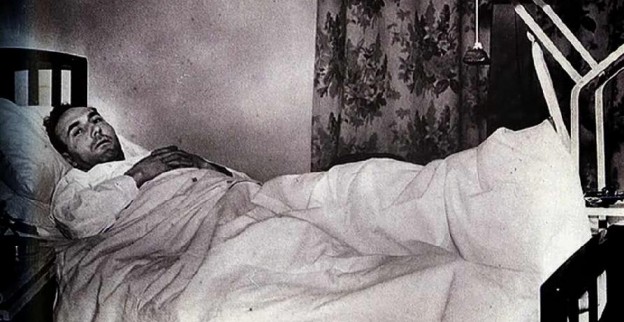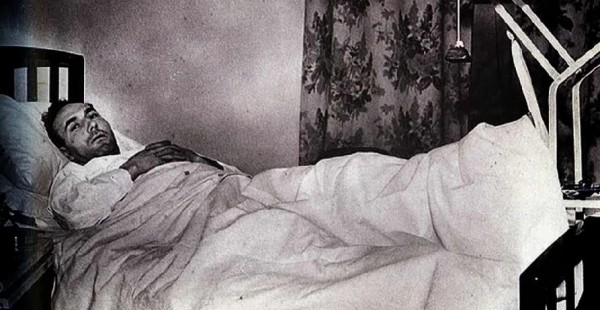An extraordinary case of proselytism has occurred in Strabane. On Friday and Saturday last the Rev. Patrick Magee, a Roman Catholic curate, obtruded himself into the house of an aged and dying Presbyterian, and performed upon him the last rites of the Romish Church. The principal circumstances are these: John McCorkle, the dying man, aged eighty, was all his life a Presbyterian. He lived in a house by himself, being attended by a woman who is a Roman Catholic. The Rev. Jas. Gibson regularly visited him, and entertained a favourable opinion of the old man’s piety. He was also frequently visited by one of the elders. On Sunday the 22nd ult.. Mr McCorkle sent word to Mr Gibson that he was very ill, and requested to be remembered in the prayers of the congregation; soon after his mind began to wander. He accused the fairies of having shot him through the head, and he mentioned the name of Mr Magee – the priest – as having power to save him from their influence. On being asked, he said that the suggestion had come from ‘that woman there’, meaning his Roman Catholic servant. Mr Magee was afterwards summoned by the woman in Mr McCorkles’s name.He came at once, and began his ministrations before any of the old man’s relatives, who are all Presbyterians, were aware. An old neighbour woman, a Presbyterian, came in, and was astonished to see the priest at the bedside. She told him he must have made a mistake, and requested him to withdraw. He told her he had been sent for, and refused to withdraw, but ordered her to leave the house. She at length ran and acquainted the sick man’s relatives. One of them, a respectable young woman, ran in and ordered the priest to desist. The priest seized her by the arm roughly, and forcibly expelled her, barricading the door. A male relative soon arrived and forced the door open, so as to be able to see the priest, and warn him to desist. Mr Magee put his head out of the door and ordered a Romanist, who was passing, to put the man away. This he did speedily and violently. A Romish crowd also collected to protect their priest from interruption. Mr Magee, on Sunday evening went to a magistrate and made an affidavit, in which he swore that he had been sent for by Mr McCorkle, that he had found him quite sensible and anxious to see him, but that he apprehended personal violence in case he attempted to repeat his visit, and therefore claimed the protection of the constabulary. This was granted, and shortly after eleven o’clock at night he proceeded again to the house, accompanied by a number of armed police and a crowd of Romanists. All the sick man’s relations but one, a young man, had gone home. The priest ordered his friends away. This was done, the door closed, and the priest finished his work. McCorkle was made a Romanist, and died a few hours later ‘a good Catholic’. It is no wonder that such proceedings have excited deep feelings of indignation in the minds of the Protestant members of the community. The Romanists exult over their new ‘convert’ and prayers were offered for the repose of his soul in Strabane Chapel, on Sunday last. Here we have the whole machinery of proselytism. An old man, in a state of mental aberration, a Romish woman bringing the priest, a Romish crowd, and even the police assisting. Are these things to be allowed in the Protestant North? Is an aged Protestant not to be allowed to die in peace? This is another instance of the mode in which converts are made to Romanism. The conversion is a farce, but greater care must be taken that sick Protestants be protected from annoyance. We allow religious liberty to others, and we must have it to ourselves, otherwise the struggles of the past are vain and must be re-commenced.’ ‘Proselytism in Strabane’, Belfast News-Letter (5 July 1862) no. 15321, p. 3 excerpted from the Derry Sentinel.


